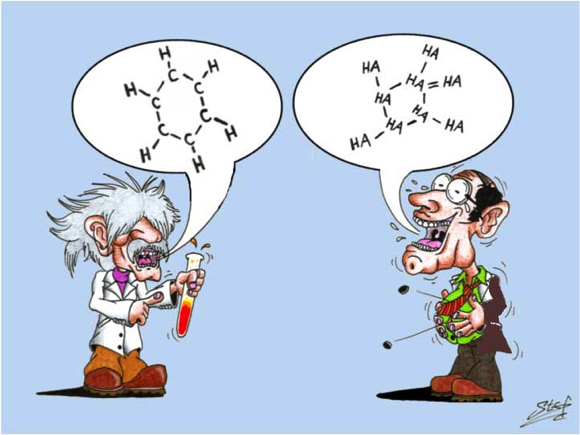Science Education

The establishment of a scientific and technical culture requires a fundamental change in the relationship of individuals to science and technology. While science and technology are a powerful engine of economic and social development, while they dramatically alter our daily lives, the gap is widening between science, technology and society.
The majority of people still believe that these disciplines do not concern them, that they are the business of the specialists. On the other side, scientists, engineers, have to produce more and faster partial knowledge to remain competitive.
Science and technology then become the subject of controversy. Attacked, they raise new questions, raise contradictions and even make emerge from the anguish. The development of anti-science movements, the rise of irrationality and fundamentalism popularized by television are there to testify.
Reconciliation between science and society, between classic and scientific culture, represents one of the challenges of our time. It is also necessary that researchers leave their ivory tower! In turn, they should appear as watchmen at all times, giving the alert and making prevention for society that subsidizes and as prospectors because they illuminate, identify, evaluate opportunities and risks.
This transformation of science-society relations is not just a matter for experts. The school has its place, provided it knows how to fundamentally reform. When asked if young people are interested in science at school, they almost invariably said no. In Europe, the student is often disgusted by science at school; his curiosity decreases with grade level.
Programs, methods, science classes often miss because they do not sufficiently take into account the pleasure to discover of the young. Certainly, science and technology are not immediately carriers topics such as sports or rock music. But the sciences frighten, they are too used only as selection elements. Furthermore, the current educational choices gave to these approaches a rather repulsive access (manner), requiring of the memorization, an abstruse vocabulary and many mathematical formulae.
Museums, Cities of knowledge, new combinations of knowledge sharing are to created, they also have an irreplaceable role. These places are not there to develop knowledge instead of individuals, their challenge is to put them in a position to question and understand.
In addition, an integrated approach (school and media) science and technology is to be set up. The issue is no longer a "science become culture," but the contribution of science in the emergence of a new shared culture. It is also necessary that the scientific education and mediation strategies are carriers of meaning for individuals; and for that they leave questions, needs, individual procedures, and not vice versa. The questions of students or the public's views are not ignorances to be filled, they are “obliged passages”.
André Giordan has worked firstly on educational and cultural objectives that allows this area and in particular on the links between science, ethics and culture: which knowledge a young person has to master to understand the world, understand himself and to play a role of a warned citizen
Other hand, it has developed tools and resources for teachers and science mediators related researches on the history and epistemology of experimental approach:
- new approaches to investigations,
- systemic approach
- scientific attitudes.